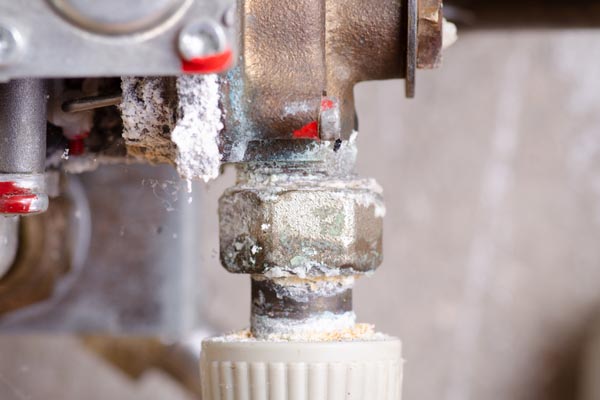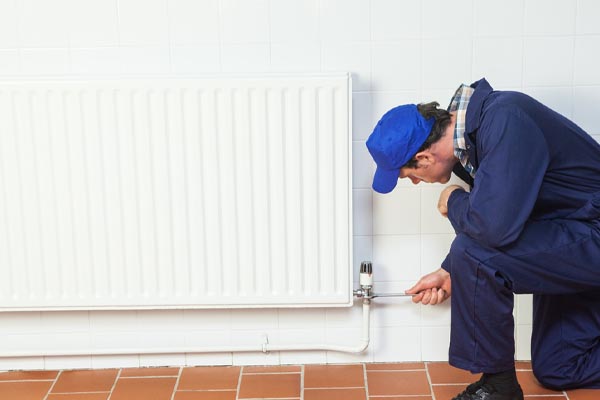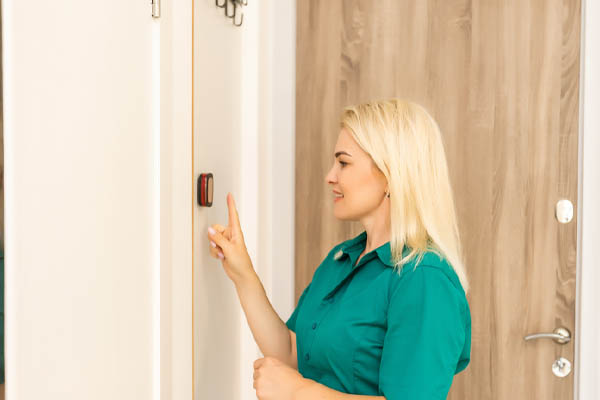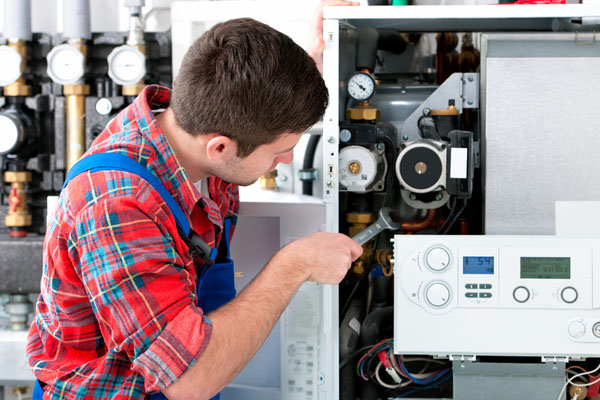Top 10 Boiler Problems Homeowners Experience

Boiler problems are less than ideal and happen unexpectedly. Unreliable heating presents many issues for homeowners. In addition, exposure to extreme cold is dangerous, especially for children and elderly loved ones. Being knowledgeable about common boiler problems helps you act quickly and avoid system failures. Read further to learn about common boiler problems and what to do next.
Top 10 Boiler Problems Homeowners Experience
Contents
- 1 Top 10 Boiler Problems Homeowners Experience
- 1.1 1. Boiler Is Leaking
- 1.2 2. Low Boiler Pressure
- 1.3 3. No Heating Coming From the Boiler
- 1.4 4. Frozen Condensate Pipe
- 1.5 5. Radiator Issues and Uneven Heating
- 1.6 6. Problems With the Thermostat
- 1.7 7. Odd Noises Coming from the Boiler
- 1.8 8. Boiler Pilot Light Keeps Switching Off
- 1.9 9. The Boiler Won’t Turn On or Stay On
- 1.10 10. A Complete Boiler Breakdown
- 2 Call McAllister Energy For Your Home Heating Needs
Below, we share some of the most common boiler issues that most homeowners face at one point or another.
1. Boiler Is Leaking

Pressure valves and the pump seal are common culprits for boiler leaks. However, the excess boiler pressure is the issue if the leak originates from the pressure valve. If the pump seal is the problem, the HVAC service provider can replace it to restore function.
Corrosion causes leaks around the boiler pipes, and inferior installations increase the risks. An HVAC contractor offers inspections, boiler repairs, and recommendations for mitigating leaks and keeping the boiler operating as expected. If the contractor discovers the boiler system is faulty, they recommend a complete heating system replacement unit.
2. Low Boiler Pressure
Taking a look at the pressure gauge shows if the boiler pressure is too low and needs adjusting. HVAC professionals recommend a pressure reading of 1.5 to maintain appropriate pressure and function. Manufacturers do not recommend settings at 1.0 or below as it prevents the boiler from operating and maintaining adequate heating.
Lower boiler pressure results from failing components, worn seals, or leaks. For example, malfunctions might happen when the service provider bleeds the radiator, and these issues play a role in altering the boiler pressure.
HVAC technicians start by inspecting the residential boiler for visible leaks. Once they find the culprit, the contractor fixes the issue and pressurizes the boiler. Homeowners should never attempt to perform these repairs on their own. Instead, it’s best to set up services with an HVAC technician.
3. No Heating Coming From the Boiler

When the boiler fails to produce heat and keep your home at a comfortable temperature, it’s incredibly frustrating. Failing motorized valves, thermostats, and system diaphragms are prevailing issues that prevent heat production. Low boiler pressure and airlocks contribute to these problems, too.
For low pressure, the HVAC technician checks the pressure gauge. If the setting is the problem, they repressurize the boiler. Persistent pressure problems may require replacing the pressure valve.
Thermostat problems indicate that the component needs recalibration or replacement. For example, thermostats become dirty between seasons, and an HVAC professional cleans and tests the thermostat. If you need a thermostat replacement, the contractor recommends replacement products.
Programmable thermostats are beneficial for homeowners and let them adjust the temperature settings. You can change the settings to reduce how often the boiler runs while you are away from home. This step decreases your heating costs. The features adjust the temperature settings automatically according to your preferences.
Damaged motorized valves and faulty system diaphragms require replacement services. An HVAC contractor can perform repairs and replacements for you to restore heat to your home.
4. Frozen Condensate Pipe
Frozen condensate pipes happen if temperatures drop below freezing. The condensate pipes transport condensation, water, and moisture to the exterior drain to keep the inside of your home dry. Unfortunately, condensate leaks increase the risk of mildew and mold.
If the pipes freeze, blockages are possible, and condensation builds up in the lines and leaks inside the home. In addition, the boiler’s condensate pipes installed around the property’s exterior or garage require insulation. An HVAC contractor can complete winterization steps for these pipes and prevent freezing.
If you notice any leaks, a technician can inspect the condensate drain and remove any blockage. These steps mitigate the risk of mold inside and outside your home. However, if the drain or pipes are damaged, it’s time to replace them to avoid system shutdowns and potential health hazards in the house.
Related Article: What Is A Boiler Expansion Tank?
5. Radiator Issues and Uneven Heating

Radiator problems cause cold spots in the home. Sludge and built-up air pressure are common culprits for these issues. An HVAC technician can bleed the radiator to manage these problems. The service prevents uneven heating and keeps the property comfortable all winter long.
Contacting a seasoned HVAC contractor in your area helps you find the source of the radiator issues. Set up an appointment with an HVAC provider to correct radiator problems.
6. Problems With the Thermostat

Thermostat issues cause irregular temperature readings. If the thermostat gauges the room temperature incorrectly, the component engages the boiler, producing heated air. The inconsistent thermostat readings cause frequent cycles, making indoor temperatures uncomfortable. However, the same problem may prevent the boiler from starting entirely.
The most apparent issue with a thermostat is dead batteries. An HVAC technician can provide longer-lasting batteries for the thermostat. However, if the thermostat fails, it’s time to replace it.
Related Article: What Is The Best Temperature To Set Your Heating Oil Boiler At?
7. Odd Noises Coming from the Boiler
Kettling is possible if you hear odd noises like gurgling or whistling from the boiler. Unfortunately, the only way to manage kettling is for an HVAC professional to pull the heat exchanger out of the unit and clean it thoroughly. Limestone builds up on the heat exchanger and causes the problem. Other culprits are built-up air, failing pumps, or reduced water pressure.
8. Boiler Pilot Light Keeps Switching Off
The pilot light lights the burner to heat the gas or a heat exchanger. If the pilot light fails, it won’t stay lit or help the boiler produce heated air. The most common reason for pilot light failures is a faulty thermocouple.
Fuel won’t flow as expected when the components fail, and boilers need a heat source to generate heat. In addition, dust and debris build up in the pilot light over time. Seasonal cleaning services address these issues and keep dust and debris at bay.
Contact an HVAC provider to assess the component if the pilot light goes out frequently. Never try to manage these problems on your own. If the boiler is over ten years old, consider replacing it with an updated system. Newer boilers ignite the pilot light via electricity and reduce gas-related risks in the home.
Related Article: What To Look For In A New Oil Boiler For Your Home
9. The Boiler Won’t Turn On or Stay On

The electric panel is the first place to check if your boiler unit doesn’t come on. A tripped break for the boil indicates a power supply problem. But first, see if you can flip the breaker back on. If so, see if the boiler engages. If not, call an HVAC contractor to test the electrical supply.
Low boiler pressure triggers the system and prevents it from staying engaged and heating the home. An HVAC technician can pressurize the boiler and correct the problem. If these steps don’t fix the problem, the contractor completes an inspection and tests the boiler for issues.
10. A Complete Boiler Breakdown
HVAC professionals recommend routine maintenance, servicing, and seasonal cleaning services for boilers. Homeowners should set up the services before the start of winter or at least before they start the boiler for the first time.
Servicing the boiler before it’s needed helps you find problems that prevent you from heating your home. If the boiler is too old, it’s time to consider a total replacement. An HVAC provider can recommend a new boiler or heating system for your property.
Annual boiler inspections reveal problem areas and explain why your boiler isn’t energy efficient. If your heating costs increase unexpectedly, there is a problem, and an HVAC contractor can help. A boiler over ten years old requires replacement. The boiler’s life span decreases if you don’t set up maintenance services annually. Your preferred HVAC provider can set up an annual schedule for you and may offer a service plan to help you save money on these services.
With all boiler issues, it’s best to contact an HVAC professional to determine if the boiler is a total loss. You could overlook critical problems if you try to manage the issues on your own. In addition, most manufacturers’ warranties are void if a professional doesn’t perform the services.
Call McAllister Energy For Your Home Heating Needs
 McAllister Energy offers superior heating and cooling services for all homeowners in our service area. We hire well-trained technicians who are licensed, bonded, and insured to give you the best services possible. Our contractors perform all HVAC services, including repairs, installations, routine maintenance, and replacements. In addition, all our technicians are familiar with all makes and models of heating and cooling systems. As a result, you can get the peace of mind that all services are performed correctly in the first place.
McAllister Energy offers superior heating and cooling services for all homeowners in our service area. We hire well-trained technicians who are licensed, bonded, and insured to give you the best services possible. Our contractors perform all HVAC services, including repairs, installations, routine maintenance, and replacements. In addition, all our technicians are familiar with all makes and models of heating and cooling systems. As a result, you can get the peace of mind that all services are performed correctly in the first place.
McAllister Energy offers competitive pricing with all homeowners in mind, and we make it our mission to provide affordable heating and cooling systems for all families. Our technicians recommend energy-efficient systems and offer reasonable upfront costs if you need a complete replacement. We want all families to stay comfortable all year round and guarantee all our services. Contact McAllister Energy to schedule an appointment or get a service quote.
You can click here to contact us now or call us at (856) 665-4545 to find out more!